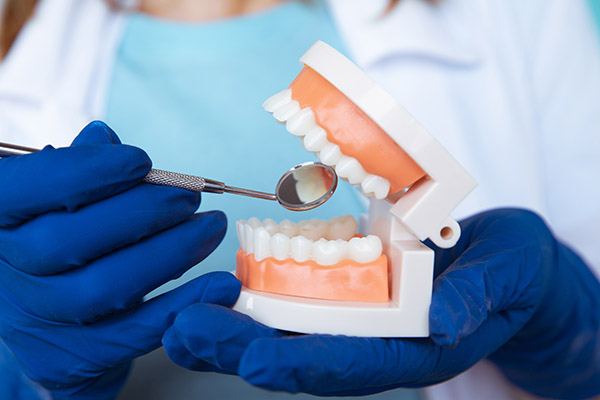 There are many options available for dental restorations, and it is important to be informed about the procedures and treatment plans involved before committing to one. Typically, a patient will have a consultation with a dental professional prior to having any work done. This type of appointment is an ideal time to ask questions and become familiar with what the restoration process looks like. Here are some questions to get the answers to before the day of the procedure.
There are many options available for dental restorations, and it is important to be informed about the procedures and treatment plans involved before committing to one. Typically, a patient will have a consultation with a dental professional prior to having any work done. This type of appointment is an ideal time to ask questions and become familiar with what the restoration process looks like. Here are some questions to get the answers to before the day of the procedure.
3 important questions to ask before getting a dental restoration
Each person is unique, so make sure to customize any questions to the specific situation at hand.
1. What are the treatment options?
In certain situations, there may be more than one viable treatment option. Just because a procedure is recommended does not mean there are no alternatives, some of which may be preferred depending on the patient. Factors such as age, medical history, and oral health can make a big difference in which treatment plan is right for each patient.
Because the cost associated with each procedure can be different, it can be helpful not only to ask about multiple treatment options but also the potential cost of each. Also, dental insurance companies may not cover some procedures, so it is important to know what insurance will cover before deciding on a treatment plan.
2. What risks are involved?
Any type of medical procedure, including dental procedures, comes with risks. Some risks may be obvious or commonly known, while others are apparent only to a dental professional. It is the job of a dentist to make patients aware of all risks associated with each procedure or treatment plan. Being properly informed is the only way to accurately decide whether a procedure is the right course of action.
3. How long are the results expected to last?
The success of a procedure and the length of results depend on a variety of factors, not the least of which is the choice of procedure. Some treatments, such as dental implants, are designed to be more permanent. Others, such as temporary fillings, are only designed to last a short while until a more permanent restoration can be completed.
Another factor is the type of material used for the restoration. Most veneers are designed to last up to 25 years, while most crowns and fillings are able to last up to 10 years. Metal fillings can last longer than those done using composite resin, and porcelain crowns can last longer than crowns made from ceramic.
Oral hygiene is another critical factor in the lifespan of dental restorations. Brushing, flossing, having regularly scheduled cleanings, and limiting foods that are difficult to bite or chew can all be ways to ensure a restoration lasts as long as possible.
Conclusion
Before getting dental restorations, ask the dental professional performing the procedure any questions that may arise. Doing so can help avoid unexpected results, unnecessary complications, and an unsatisfactory experience.
Request an appointment or call R. David Brumbaugh, DDS at 214-306-4402 for an appointment in our Dallas office.
Related Posts
People who are looking to improve their smiles often consider the various dental restorations that are available. These restorations can fix a number of issues, including missing, fractured, chipped, decayed, and weakened teeth. The purpose of the procedures is to improve not only the look of the teeth but also their function. Depending on the…
For patients who have damaged or decaying teeth, dental restorations may be a necessity. Dentists use a variety of restorative procedures to protect and repair the structural integrity of an individual's teeth. Some of the most common restoration procedures may include dentures, crowns, and fillings.No individual should suffer from severe tooth pain or discomfort. Decaying…
Dental restorations have been used for thousands of years. In fact, a 2012 article published by The New York Times details the discovery of a 6,500-year-old human jawbone. Considered the earliest evidence of dental fillings, it had beeswax in one tooth, which researchers believe was to ease the pain of a crack. These days, restorations…


